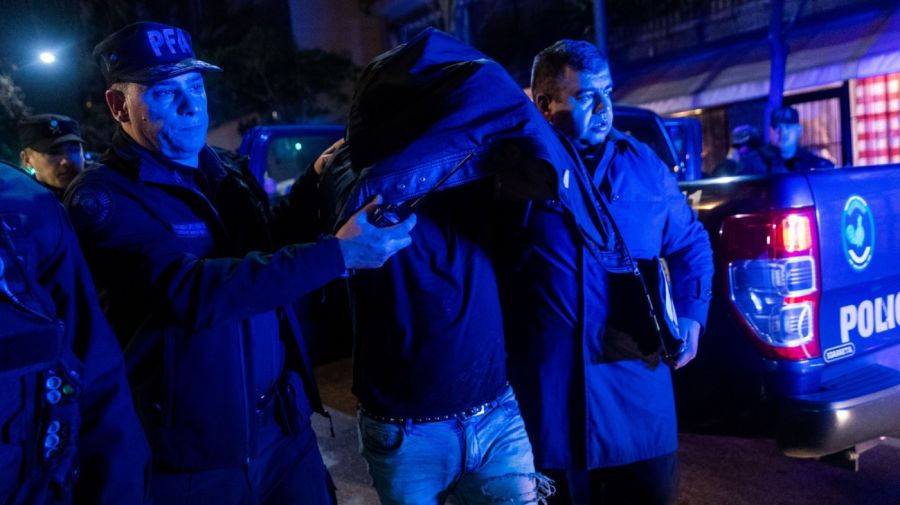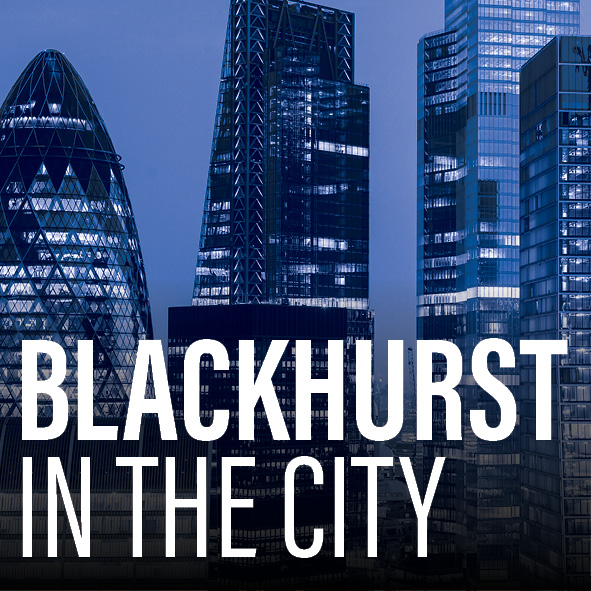A 35-year-old man has been detained by police after he attempted to fire a handgun aimed at Cristina Fernández de Kirchner at point-blank range as the vice-president returned to her apartment in Recoleta, Buenos Aires.

A SCREENGRAB FROM THE MOMENT A MAN ATTEMPTED TO ASSASSINATE VICE-PRESIDENT CRISTINA FERNÁNDEZ DE KIRCHNER OUTSIDE HER APARTMENT IN RECOLETA, BUENOS AIRES. | CEDOC/PERFIL/BUENOS AIRES TIMES
A 35-year-old man has been detained by police after he aimed a handgun at Cristina Fernández de Kirchner at point-blank range as the vice-president returned to her apartment in Recoleta, Buenos Aires.
Fernández de Kirchner was not injured in the suspected assassination attempt late Thursday night, said government officials. The perpetrator was quickly detained by the federal police and the former president's bodyguards. According to reports, he pulled the trigger twice but the gun failed to fire.
Images of the man, later identified as Brazilian 35-year-old Fernando Sabak Montiel, pointing the gun at Fernández de Kirchner's head as she got out of a car that was driving her from Congress to her residence were recorded by several bystanders and news organisations. The footage was soon being replayed on television channels and social networks within minutes.
Government officials confirmed Thursday that Montiel had been arrested last year for possession of a dangerous weapon.

Security Minister Anibal Fernandez said on live television shortly after the attack that the perpetrator had been detained and that the incident took place as the Senate chief was returning to her home in the wealthy Buenos Aires neighbourhood.
"Now the situation has to be analysed by our people from the forensic police in order to evaluate fingerprints and the capacity and disposition of this person," the minister added.
The suspected attacker reportedly approached Fernández de Kirchner from a waiting crowd of supporters that have been holding a vigil outside her apartment block, before asking for an autograph for a copy of her best-selling autobiographical book, Sinceramente.
As the vice-president greeted supporters, he pulled the weapon, though the gun did not fire. A melee ensued and the vice-president was removed from the area, although she continued to speak with others who were present.
"Cristina remains alive because, for a reason not yet technically confirmed, the gun, which had five bullets in it, did not fire despite having been triggered," President Alberto Fernández said in an address to the nation aired close to midnight.
Hundreds of activists have gathered near the building that houses the vice-president's building, on Juncal and Uruguay streets, for more than a week. They are staging the vigil in rejection of an ongoing corruption trial against the 69-year-old former president, who stands accused of fraudulently awarding public works contracts in her stronghold Santa Cruz Province in Patagonia.
Prosecutors have asked that the ex-president, who ruled from 2007 to 2015, face 12 years in jail and a lifetime ban from politics.
As Senate chief, Fernández de Kirchner enjoys parliamentary immunity. Even if convicted – a verdict is expected at the end of the year – she would not go to prison unless her sentence was ratified by the country's Supreme Court, or she loses her Senate seat at the next elections at the end of 2023.
Tensions have risen sharply in Argentina in recent weeks as the trial against the vice-president progresses. Fernández de Kirchner, who denies the allegations, has accused the opposition of leading a plot orchestrating "judicial and political persecution" against her.
She has been acquitted in several cases for alleged crimes that occurred while she was president, but still faces five trials.

Condemnation
Cases of political violence are extremely rare in Argentina since the return of democracy in the early 1980s and Thursday’s attempted magnicide unified government and the opposition in denouncing the attack. It was swiftly condemned by the Juntos por el Cambio coalition, which called for an immediate investigation into the incident, and also by members of President's Alberto Fernández's administration.
Economy Minister Sergio Massa tweeted: "When hatred and violence prevail over the debate of ideas, they destroy societies and situations like today's are generated: an attempted assassination. All my solidarity to @CFKArgentina and her family."
Santiago Cafiero also expressed his solidarity. They wanted to kill @CFKArgentina. It is the most serious act of political violence since the return of democracy. Fuerza Cristina," he wrote on Twitter.
Buenos Aires City Mayor Horacio Rodríguez Larreta, who has exchanged criticism with the vice-president this past week over the vigil, expressed his "strongest repudiation" over the attempted attack. Earlier this week, supporters of the vice-president clashed with police as City officials attempted to put up barriers on the streets near Fernández de Kirchner's home.
"My total solidarity with @CFKArgentina and my strongest repudiation and condemnation of what happened tonight. Justice must act quickly to clarify the facts," wrote the opposition mayor.
"This is a turning point in the democratic history of our country. Today, more than ever, all Argentines have to work together for PEACE," he wrote.
"My absolute repudiation of the attack suffered by Cristina Kirchner, which fortunately has had no consequences for the vice-president. This extremely serious incident requires immediate and thorough clarification by the justice system and the security forces," said former president Mauricio Macri, who succeeded Fernández de Kirchner in office, in a post on social media.
President Fernández plans to speak to the country in a national address later tonight, government officials said late Thursday night.
Reports also emerged that politicians from both the ruling Frente de Todos and opposition Juntos por el Cambio coalition were organising a press conference at Congress to jointly condemn the attack.
– TIMES/PERFIL/AFP
Large demonstrations called for midday Friday across Argentina in repudiation of the failed assassination attempt on Vice-President Cristina Fernández de Kirchner's life.

POLICE STAND GUARD OUTSIDE THE RESIDENCE OF VICE-PRESIDENT CRISTINA FERNÁNDEZ DE KIRCHNER IN BUENOS AIRES ON SEPTEMBER 2, 2022. | AFP/LUIS ROBAYO
Large demonstrations, called by pro-government political organisations and trade unions are set to begin at midday Friday across Argentina in repudiation of the failed assassination attempt on Vice-President Cristina Fernández de Kirchner's life.
The shooting attempt on the vice-president's life, perpetrated by a man who apparently acted alone, has stunned the nation. President Alberto Fernández described it as the most serious incident since the return to democracy in 1983.
Pope Francis, the leader of the Catholic Church and a former archbishop of Buenos Aires, sent Fernández de Kirchner a telegram in which he expressed his "solidarity and closeness at this delicate moment." He said he was praying that "social harmony and respect for democratic values will always prevail."
Reacting to the attack in an address to the country, President Fernández called a national holiday for Friday. Minutes later, the ruling Frente de Todos coalition called for a march to the Plaza de Mayo "to defend democracy" and show solidarity with the vice-president.
"Cristina remains alive because for a reason that has not yet been technically confirmed, the gun, which had five bullets, was not fired despite having been triggered," the president said in his speech broadcast at midnight.
Argentines have been left stunned by the attack. A man, who was detained swiftly by police and the vice-president's security detail, took aim at close range and attempted to fire a gun at Fernández de Kirchner's face outside her home in the Recoleta neighbourhood of Buenos Aires.
On Friday, a vigil of militant supporters continued outside her apartment building amid a heavy police presence. The area was cordoned off to bystanders.
"We were waiting for our beloved Cristina. And she came down to greet everyone, like every night, to greet the people. And all of a sudden there was a commotion, and it was that guy who pointed the gun at her. They grabbed him right next to me, they ran him this way and I have the face of that bastard stuck in my head," said Teresa, who did not give her surname, in the early hours of the Friday morning in front of the vice-president's home.
The attacker slipped into the crowd of activists waiting to express their solidarity with the former president (2007-2015), in a demonstration that has been repeated every night since August 22, the day prosecutors in a trial against her and 12 others requested that she be handed 12 years in prison and banned from public office for alleged corruption offences.
CFK supporter Martín Frías, 48, said that after the attack "we know the enemy better, but we are not giving up the fight – it means taking greater precautions, but with the same convictions as always."
Judge María Eugenia Capuchetti and prosecutor Carlos Rivolo, who are in charge of the investigation into Thursday night's attack, carried out an inspection on Friday morning of the area where the attack took place.
Attacker and condemnation
The detainee, identified as 35-year-old Fernando André Sabag Montiel, Brazilian nationality, though he was born to an Argentine mother and Chilean father.
He has lived in Argentina since 1993 and was arrested on March 17, 2021 for carrying non-conventional weapons, according to police sources quoted by the Télam state news agency.
The attack was condemned by Latin American leaders and the head of the Spanish government, as well as the spokesperson for the United Nations Human Rights Office, Ravina Shamdasani.
"We are aware, we are shocked and we will be following the situation closely," Shamdasani told reporters in Geneva on Friday. "Any kind of political violence is condemnable and it is important to address differences through dialogue; certainly not in this way," she added.
Politicians from across Argentina's political spectrum condemned the attack, including former president Mauricio Macri, leader of the opposition, as well as the powerful Argentine Industrial Union business group and the Supreme Court.
Messages of shock and solidarity poured in from around the world Friday after a man tries to shoot Vice-President Cristina Fernández de Kirchner in an attack captured on video. The Pope, Latin American leaders and the UN Rights office in Geneva among those to send messages of support to Argentina’s vice-president.

VICE-PRESIDENT CRISTINA FERNÁNDEZ DE KIRCHNER GREETS HER SUPPORTERS OUTSIDE HER RESIDENCE IN BUENOS AIRES, ON SEPTEMBER 2, 2022. | AFP/LUIS ROBAYO
Messages of shock and solidarity poured in from around the world Friday after a man tried to shoot Cristina Fernández de Kirchner in an attack captured on video.
Government officials and politicians from across Argentina’s political spectrum condemned the attack, including former president Mauricio Macri, leader of the opposition, as well as the powerful Argentine Industrial Union business group, the Supreme Court and a host of human rights organisations
The Pope, Latin American leaders and the UN Rights office in Geneva were among those to send messages of support as police investigated whether the suspect, a Brazilian man, had acted alone.
UN chief António Guterres on Friday expressed shock over the attempted assassination.
"The Secretary-General was shocked at this news," UN spokesman Eri Kaneko told reporters. "He condemns this violence. And he expresses his solidarity with the vice-president, the government and the people of Argentina."
Even Brazil's President Jair Bolsonaro, a fierce critic of Fernández de Kirchner, lamented the attempted shooting.
"I've already sent her a note. I'm sorry," the far-right leader told the press. "Thank goodness the assailant did not know how to handle weapons. If he had, he would have succeeded.
US Secretary of State Antony Blinken on Friday called for a rejection of political violence and "hate" in the wake of the attack.
"The United States strongly condemns the assassination attempt on Vice President Cristina Fernández de Kirchner," Blinken wrote on Twitter. "We stand with the Argentine government and people in rejecting violence and hate."
US Ambassador to Argentina Marc Stanley had echoed those sentiments hours earlier. “Relieved that Vice-President @CFKArgentina is okay. The United States stands with Argentina and all peaceful loving people in rejecting violence, extremism and hate everywhere,” he wrote on the same network.
Latin American allies including Venezuela’s Nicolás Maduro, Bolivia’s Luis Arce and ex-Brazil leader Luiz Inácio Lula da Silva were among the first to condemn the attack on the vice-president.
A selection of some other notable reactions:
– The attack on Cristina in Argentina is the result of sectarianism that turns into violence. It has become Latin American practice to think that politics is the physical or legal elimination of the adversary, such a practice is pure fascism. Politics must be Freedom" (President of Colombia, Gustavo Petro, on Twitter).
– “Committed as we are throughout Latin America to continue to forge paths of understanding, peace and rights for all, we are dismayed by what happened yesterday in the Republic of Argentina, where armed violence burst into this democracy that has been so carefully guarded" (President of Nicaragua, Daniel Ortega, in a message to the vice-president).
– “Violence can never, never be tolerated under any circumstances. My solidarity with Mrs Cristina Fernández and all the Argentine people in the face of the attack" (President of Uruguay, Luis Lacalle Pou, on Twitter).
– “We stand in solidarity with the Republic of Argentina in the face of the assassination attempt on its Vice-President Cristina Fernández. We join all the voices that repudiate violence and demand justice" (President of Paraguay, Mario Abdo Benitez, on Twitter).
– Thank God the tragedy did not take place. Indeed, they [Vladimir Putin and Cristina Fernández] had a warm relationship when Mrs. Kirchner was president. In the current situation, there is no need for contact" (Kremlin spokesman Dmitry Peskov, speaking to the press).
– The [UN] Secretary General was shocked by this news. He condemns this violence and expresses his solidarity with the vice-president, the government and the people of Argentina" (António Guterres' spokesman at a press conference).
– “I wish to express my solidarity and closeness to you at this delicate moment ... I pray that in dear Argentina social harmony and respect for democratic values will always prevail, against all types of violence and aggression" (Pope Francis, former Archbishop of Buenos Aires, in message sent to Fernández de Kirchner).
- “It was regrettable, reprehensible, but at the same time I would say miraculous because Cristina is fine. It is a reprehensible act in any circumstance, it cannot be justified even when dealing with enemies, let alone adversaries" (President of Mexico, Andrés Manuel López Obrador, at a press conference).
– "We send our solidarity to Vice President CFKArgentina in the face of the attempt on her life. We strongly repudiate this action that seeks to destabilise the peace of the brotherly Argentine people. The Great Homeland is with you, comrade! #FuerzaArgentina #FuerzaCristin." (President of Venezuela, Nicolás Maduro, on Twitter).
– "From #Cuba, dismayed at the attempted assassination of @CFKArgentina, we convey all our solidarity to the vice-president, the Argentine government and the Argentine people" (Cuban President Miguel Díaz-Canel on Twitter).
– "The assassination attempt on the Vice-President of Argentina, Cristina Fernández, deserves the repudiation and condemnation of the entire continent. My solidarity with her, the government and the people of Argentina. The way forward will always be the debate of ideas and dialogue, never weapons or violence" (President of Chile, Gabriel Boric, Twitter).
– "All my solidarity with Vice-President @CFKArgentina and the Argentine people. The Peruvian government condemns the attempt on her life today. We repudiate all acts of violence" (President of Peru, Pedro Castillo, on Twitter).
– "All my solidarity to comrade @CFKArgentina, victim of a fascist criminal who does not know how to respect differences and diversity. Cristina is a woman who deserves the respect of any democrat in the world. Thank God she was unharmed" (Former President of Brazil Luiz Inácio Lula da Silva, on Twitter).
– "We emphatically repudiate the attempt on the life of sister @CFKArgentina, vice-president of #Argentina. From the Plurinational State of #Bolivia, we send all our support, to her, her family, the government and the Argentine people. #TodosConCristina" (Bolivian President Luis Arce, on Twitter).
– "We condemn the cowardly assassination attempt against our sister @CFKArgentina. All our solidarity to the vice-president. The Patria Grande is with you sister. The criminal and servile right wing to imperialism will not pass. The free and dignified people of #Argentina will defeat it" (Former President of Bolivia, Evo Morales, on the same platform).
- "What is wrong with the world! My absolute solidarity with Cristina" (Former President of Ecuador Rafael Correa, on Twitter).
– "No act guided by hate can be endured. What @CFKArgentina suffered today must never be allowed. My solidarity with her and my rejection and condemnation of this criminal act" (Former President of Peru Ollanta Humala on Twitter).
– "The Government of Mexico expresses its rejection and condemnation of the attack against the Vice-President of Argentina, Cristina Fernández. Mexico's fullest solidarity with Cristina Fernández and the Government of the Republic of Argentina" (Mexico's Foreign Minister Marcelo Ebrard in two tweets).
– "Our firm condemnation of the attack against the Vice-President@CFKArgentina. We express our solidarity with the government and people of Argentina." (Foreign Minister of Honduras, Enrique Reina, on the same social network).
– TIMES/AFP

:quality(70)/cloudfront-eu-central-1.images.arcpublishing.com/thenational/W77JBCUFFRCYXLPA5OTLV55ZDA.JPG)

:quality(70)/cloudfront-eu-central-1.images.arcpublishing.com/thenational/XCEQLZWVDZUTP72HOD5RD3EPXM.jpg)
:quality(70)/cloudfront-eu-central-1.images.arcpublishing.com/thenational/PUPW7MNM75F65KVMNZWJTNSNIQ.JPG)
:quality(70)/cloudfront-eu-central-1.images.arcpublishing.com/thenational/DGRCQH3GEZCITGHKZCYRZF2IRI.JPG)
:quality(70)/cloudfront-eu-central-1.images.arcpublishing.com/thenational/PM2ZMW7SH5GARNPYRVYV4MOV5M.jpg)
/cloudfront-ap-southeast-2.images.arcpublishing.com/nzme/VWTCECKZYNUUBS5T7U6KG4GW6A.jpg)
/cloudfront-ap-southeast-2.images.arcpublishing.com/nzme/75YAAFMX5AGTCAOXDODCH7D2TI.jpg)


:quality(70):focal(802x484:812x494)/cloudfront-eu-central-1.images.arcpublishing.com/thenational/SE74Z3WR4GFIGPJSZDDSJUJLRQ.jpg)
:quality(70)/cloudfront-eu-central-1.images.arcpublishing.com/thenational/CQQGLNY6GOJNUYQ7K2UPWVSACY.jpg)












